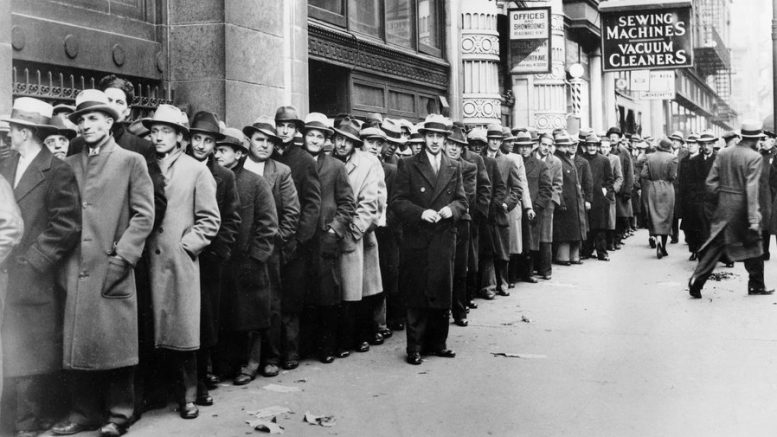Recently, South Carolina Manufacturing (SCMFG) sat down with Gary Tompkins, the CEO of The Kidder Group in Greenville, to discuss workforce concerns in South Carolina. As companies grow or look to expand their footprint in state or out, it is critical these manufacturers have access to quality labor.
- Many South Carolina manufacturers cite the “availability of skilled labor” as one of the sector’s most pressing concerns. How might this issue create barriers for in-state growth or potential companies coming into South Carolina?
Many companies find it difficult to find and hire great employees, especially talented skilled labor. I grew up in manufacturing at Kemet Electronics and our business unit grew from 250 people to over 7,000 people in just seven years. What I learned at Kemet was that developing, and training people is the surest and most cost-effective manner to grow and retain a world class workforce. The goal of manufacturing is to minimize the variation in the manufacturing process. Yet, when it comes to people, few companies have systems in place to train people well. Rather than looking for a person who has the exact experience, look at the character of people and their willingness to learn. Then develop a system to teach them how to do the job correctly.
As a recent example, I presented a candidate who was a Navy Pilot. During his interview, the Plant Manager asked why he would be qualified for a Second Shift Manufacturing Supervisor since he had no manufacturing experience. Dan said, “Well sir, I successfully completed 1,200 takeoffs and landings from an aircraft carrier. If during that time, any one of my team members didn’t do their job correctly, I would have crashed a $60 million plane into the ocean.” Dan was hired and within two months, the COO came to meet him personally because he had already been recognized as a potential for Plant Manager in the future.
So, to sum up the answer, in today’s environment, companies are going to have to evaluate people for their potential and be willing to invest in training.
- In terms of workforce, what do in-coming or in-state manufacturers need to know when looking to break ground or expand existing operations?
Many companies coming to the state select locations in rural communities for tax breaks. However, what is more important is the availability of trained employees. There are several great consultants who help with site selection and their input is valuable. If a plant is located more than an hour from a major city, it’s difficult to recruit management and technical leaders since people who are college educated prefer to live in a city with the many conveniences.
The other aspect that many companies overlook is the company culture. When you look at the companies that have low turnover and high morale, they focus on a culture of taking care of the people. It’s important to have a management team that really understands South Carolina people and our cultures and traditions. New companies, especially international firms, should hire a senior management team from the local area. Companies should benchmark the surrounding companies to identify successful practice such as rotating shifts, weekend shifts, and overtime during a start-up. Truly inspirational leaders have transparency and a huge heart. They build a company, but it’s almost like a family. For examples of great leaders, look at some of the fastest growing companies in SC and see what they are doing right.
- Can a lack of skilled labor negatively impact a company’s ability to move up the supply chain?
Certainly. Customers demand product to be delivered on-time. In today’s world, expectations are that the quality is to specifications, the quantity is correct, and price is competitive. As with every aspect of the supply chain and manufacturing process, an interruption in any part can be catastrophic. For example, if a plant loses a couple of key maintenance technicians, the machines will stop. Management will scratch their heads but are unable to fix the machines. The same holds true for every aspect of the team, whether it’s management or a technical role.
- Are in-state educational institutions producing an adequate and properly trained workforce to meet current or predicted manufacturing employment needs?
In my opinion, the education system is changing and moving in the proper direction. However, many of the programs need more integration with companies. Teachers should be welcomed on-site, and plant tours should be an option available to students. There are gaps that should be addressed but the difficulty is that the many professions are not recognized by academia. For example, every company has Sales professionals, yet few universities offer a BS or BA in Sales.
On a very positive note, many companies and universities are partnering together for internships and Co-ops. This experience is valuable to both parties as they may be training a future employee for their own company. For the student, they start to understand the manufacturing process and how their education is relevant.
- As manufacturing technology becomes more innovative and automated, what is the future of workforce development and employment recruitment in manufacturing?
The future is so bright for manufacturing. The changes in automation will eliminate many manual processes and replace them with robots and mechatronic machines that reduce the variation in the process, increase speeds exponentially, improve quality and reduce costs. As with agriculture, the number of people in manufacturing will continue to decrease as output continues to increase. This is great news for consumers as the prices decline and quality improves.
What will continue to happen in manufacturing is that the demand for technically skilled professionals will increase. We will need fewer people to feed machines or stack parts and more technicians that can program PLC’s (Programmable Logic Controllers), HMI’s (Human Machine Interfaces, like touchscreens) and Robot technicians that can “teach” robots how to do a task.
As far as the future of recruiting in manufacturing, on the professional side, partnering with a reputable recruiting firm, like The Kidder Group, Inc. who focuses on building personal relationships with clients and candidates will become more important as ads lose effectiveness when people with specific skill sets are in high demand and low supply. At our company, we enjoy coffee with people and focus on their goals and personal desires first, then we match these with our client’s needs. The results are impressive.
As I finish up my thoughts, I am optimistic about the future of manufacturing, especially in South Carolina. We have a rock-solid workforce with people who want to do a great job. We have leaders who can inspire people and we can mold our future and train people for occupations that haven’t even been imagined.
 About the Author: Joe Toppe/SCMFG Editor and Founder
About the Author: Joe Toppe/SCMFG Editor and Founder
A graduate of Kent State University’s School of Journalism, Joe has worked in the communications field covering business and manufacturing for 15 years as a photojournalist, staff writer, editor and angel-invested business owner.


Be the first to comment on "Workforce Wants and Woes; Recruiting Firm Talks Manufacturing Labor Concerns"